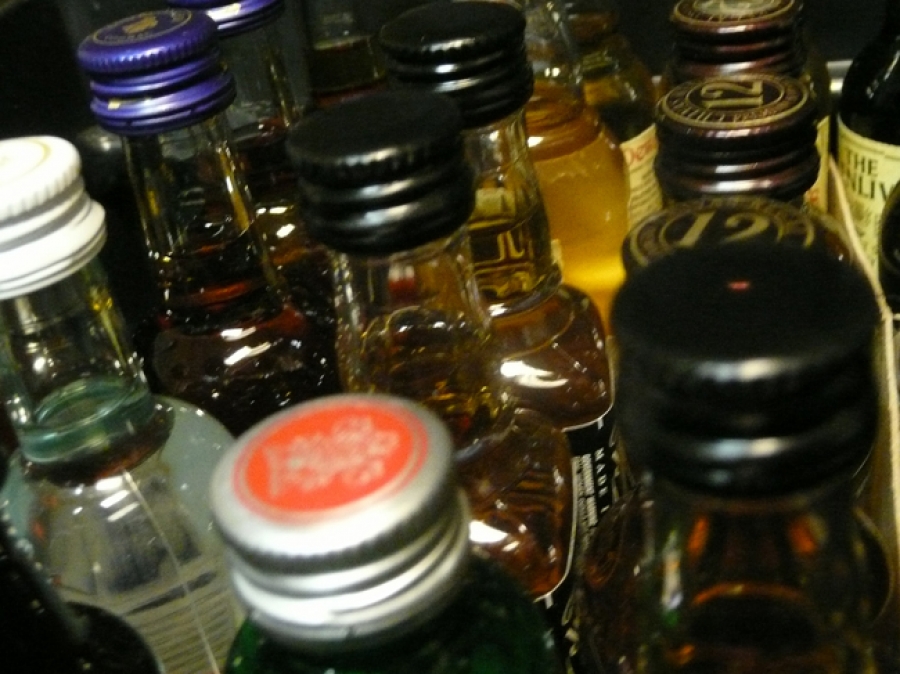Thomas Tarurongo Wynne: Where there is a demand there is a supply
Saturday 27 May 2023 | Written by Thomas Tarurongo Wynne | Published in Editorials, Opinion

Alcohol use and abuse in the cultural fabric of who we are as Cook Islanders is concerning says Thomas Tarurongo Wynne.
Alcohol use and abuse in the cultural fabric of who we are as Cook Islanders is concerning, and its use as a medicine to numb the pain of many of our social ills, inner pain and heartache says more about ourselves then maybe we realise, writes Thomas Tarurongo Wynne.
Where there is a demand for something, there is always someone that is happy to supply it. Be it simple things like steak and mushroom rolls, bought at every market on the island, or vanilla ice cream scoops in pineapples.
Clearly where people have an appetite for it, there will be someone that will be able to supply it and copy it. I remember when Aunty Manuae was doing steak and mushroom rolls at the market over 10 years ago and then it spread to so many others doing it also, now it is a staple part of our culinary cuisine because that’s also a part of being here.
Your good idea will become someone else’s good idea also, and they too will capitalise on that good idea as well. One grows tomatoes and sells them, next thing everyone is growing tomatoes and selling them. One grows watermelons, next thing everyone is growing watermelons, and next thing the market is flooded with watermelons, and now we can’t find any tomatoes. Why, because the tomato growers saw how many people liked the watermelons and stopped planting tomatoes. If only they had grown both, but like anywhere in the world, the market is driven by supply and demand.
But what about supply and demand for the illegal crops on the island. Because clearly the demand for things like marijuana is large enough so that those that risk supplying it and either growing it here and bringing it in or cultivating it, is enough to balance out the risk.
Clearly those that choose to use marijuana despite it being illegal and despite our draconian and outdated laws prohibiting it are not deterred by our laws and the risk, as well as those who decide to benefit from its supply.
Whether it’s grown locally, or on other islands in the Cook Islands group, or imported by sea or air, it is here and it is used. We are then left with the question many jurisdictions are facing, which is how do we manage and control it – if at all?
And if we look at alcohol, as a controlled and legalised drug that we import and brew in country, how are we going with the management of that drug.
If the road deaths are anything to go by, or the societal damage faced often by those that find themselves in court or in jail, or at the hands of those who commit and suffer from intimate partner violence, I’d say we aren’t doing so well. And if we were able to measure just how much abuse of alcohol was going on in our country, I wonder what that measure would look like.
What would be our score out of ten as a country?
Unlike other jurisdictions, alcohol is cheaper to buy here, cheaper than water. It can be found at any shop all around the island, and available almost 24/7, any day of the week except Sunday.
Alcohol use and abuse in the cultural fabric of who we are as Cook Islanders is concerning, and its use as a medicine to numb the pain of many of our social ills, inner pain and heartache, says more about ourselves then maybe we realise.
To then consider adopting the legalisation of yet another drug on top of that, while we struggle with the one already legal, needs some careful consideration as a country. Because once that door is opened without strong legislation and robust systems in place to protect the vulnerable, then we welcome in something we may live to regret. And I am a supporter of its decriminalisation, because I don’t think prison and cruel sentences is any way to deal with the abuse of drugs or narcotics, when we see it as a way to self-medicate our pain rather than a way to socialise.
Marijuana is in our society whether we like it or not, that also means its supply and suppliers. What is dishonest I find with the medical cannabis supporters is, they use it as a backdoor from cannabinoids, for medicinal purposes to THC and its recreational use, because that was always the intended outcome. But prison, as I have already stated, is not the answer, but neither is the wholesale use of marijuana in a population that is already grappling with alcohol saturation and abuse.
In the end, I am not sure what the answer is, but we must tread with caution, allow the science of those for and against to build and address Crimes Acts and legislation that are simply outdated.
Nonetheless we are left with the same question – what then do we do? And that challenge and opportunity is something we must address as a society, utilising all the tam aua or pillars of our society, and not leave it to the few to decide because it is us as a society that will be left with the consequences both good and bad, whatever that decision may be.














































